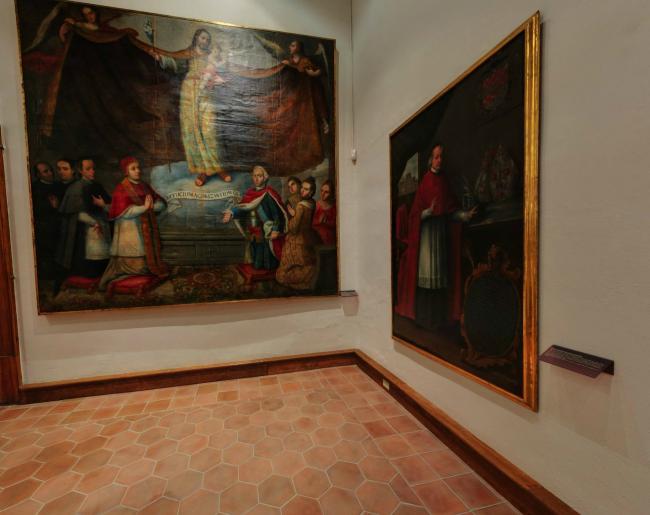
The Enlightenment and Bourbon Reforms
Sala
This section reflects the emergence of a new spirit sweeping across the Viceroyalty, ushering in changes that disrupted the established order. These reforms sparked reactions from both the elite and common people, laying the groundwork for rebellion.
A New Spirit Sweeps the Viceroyalty
By the late 17th century, the Enlightenment began reshaping European thought. Rational systems were applied to the sciences and arts to better understand and explain reality. Reason became the guiding light to dispel the “darkness of ignorance.”
In Spain, the Bourbon dynasty came to power in the early 18th century after the War of Spanish Succession. In line with Enlightenment ideals, they implemented major administrative, economic, and political reforms to strengthen royal authority and concentrate power in the hands of the monarch. During the reign of Charles III, cities were modernized, agricultural production and mining expanded, and trade improved. Tax collection was revamped to become more efficient—though often burdensome for the population.
The Enlightenment reached New Spain through secular and religious officials who introduced new ideas via educational institutions like the College of Mining, the Academy of San Carlos, and the Botanical Garden. Scientific journals and scholarly readings gained popularity among university circles and the elite.
By the mid-18th century, tensions between Spain and England alarmed the Crown, which feared losing its American colonies to the powerful British navy. In response, the monarchy called on the American population to form militias—a first step in a series of measures that would disrupt the colonial order and destabilize its political structure. These changes, which increased taxes, upset both wealthy merchants and the lower classes of New Spanish society.
Under Habsburg rule, Spanish America had often evaded royal edicts with the phrase “They shall be obeyed, but not executed.” The Bourbon effort to tighten control over New Spain helped set the stage for the Independence movement.


